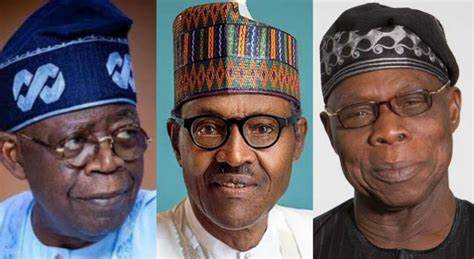
Transparency International Nigeria has squarely blamed President Bola Ahmed Tinubu and former presidents Muhammadu Buhari and Olusegun Obasanjo for the deep-rooted financial opacity and alleged fraud within the Nigerian National Petroleum Company Limited (NNPCL), spanning decades.
In an exclusive interview with DAILY POST on Monday, TI Nigeria’s Country Director, Auwal Musa Rafsanjani, called for a sweeping, independent audit of NNPCL’s finances dating back to 1999. His comments follow the release of the World Bank’s latest Nigeria Development Update (NDU), which revealed that NNPCL failed to remit ₦500 billion in oil revenue to the Federation Account between October and December 2024.
According to the report, NNPCL generated ₦1.1 trillion in crude oil sales and other income during the period but only remitted ₦600 billion, leaving a staggering ₦500 billion unaccounted for.
The revelation has reignited public outcry over endemic corruption and lack of transparency in the operations of the state-owned oil giant. The International Monetary Fund (IMF) also recently joined the call for transparency, urging NNPCL to clearly account for gains from the discontinued fuel subsidy regime.
Civil society group SERAP added its voice on Sunday, demanding a full-scale investigation into the unremitted funds, as suspicions grow over systemic rot within the oil company.
Rafsanjani stressed that the recurring opacity in NNPCL cannot be blamed on a single individual like former Group Chief Executive Officer Mele Kyari. Instead, he insists the accountability trail must reach Nigeria’s past and present presidents, many of whom also held the position of substantive Minister of Petroleum — including Tinubu, Buhari, and Obasanjo.
“All these happened under presidents who doubled as petroleum ministers. That’s why we’ve consistently opposed the practice. A proper audit should uncover all missing funds from 1999 to date,” he said.
He also slammed the National Assembly for what he described as a complete failure of oversight, calling their inaction “a national embarrassment.”
“It is not only Mele Kyari; the entire leadership since 1999 must be scrutinised. The missing funds must be recovered for the benefit of Nigerians,” Rafsanjani added.
‘Audit Long Overdue’ — Energy Expert Backs TI
Echoing TI’s position, energy expert and managing partner at BBH Consulting, Barr. Ameh Madaki, described a comprehensive audit of NNPCL as “long overdue.”
Madaki criticized the organization’s long-standing culture of secrecy, noting that the controversy surrounding the ₦500 billion is just a symptom of deeper structural issues.
“The probe must go far beyond the N500 billion. The opaque operations of NNPCL and the public’s short memory have enabled massive fraud to thrive,” he said.
He questioned the fate of the $3.3 billion borrowed by NNPCL to defend the naira through crude oil futures contracts, asking why no tangible outcomes were seen even as the naira collapsed in the forex market.
Madaki also recalled that during Buhari’s second term, NNPCL ceased remitting any funds to the Federation Account under the claim of operating as a limited liability company — a decision that left many states financially stranded.
He urged the new NNPCL GCEO, Bayo Ojulari, to embrace transparency and overhaul the system.
“Bayo Ojulari must prove to be a square peg in a square hole by purging NNPCL of its institutional rot so Nigerians can finally benefit from their national oil assets,” Madaki said.
Kyari’s Exit and the Push for Accountability
The scandal has intensified calls for an investigation into Mele Kyari’s tenure, especially as President Tinubu relieved Kyari and other board members of their duties in April 2025 over growing concerns about their performance.
Kyari had touted the revival of the Port Harcourt and Warri refineries in late 2024. However, the actual output of those facilities remained in doubt up to his exit, raising further questions about NNPCL’s operations under his leadership.
As public pressure mounts, stakeholders across the country are demanding that the missing funds be traced and recovered, and that institutional reforms be enacted to break the cycle of mismanagement in Nigeria’s oil sector.
Comments